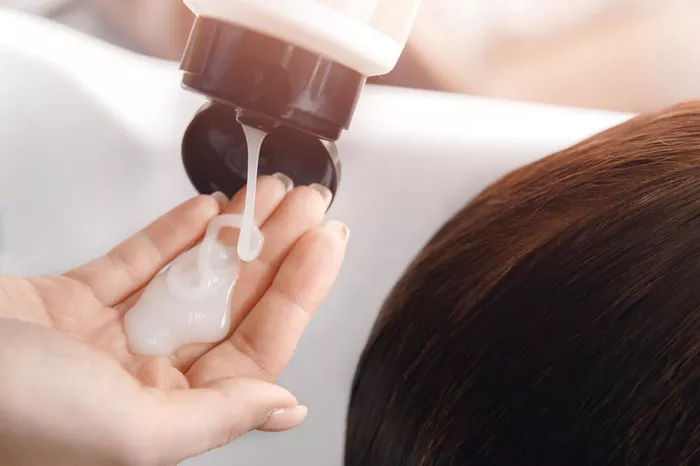If you’ve ever stood in the haircare aisle staring at bottles of conditioner, you’ve probably wondered: “Is it safe to use conditioner every day?” As a professional hairstylist, I get this question all the time. The answer isn’t a simple “yes” or “no”—it depends on your hair type, lifestyle, and the products you use. Let’s break it down step by step.
What Does Conditioner Actually Do?
Conditioner is like a moisturizer for your hair. It works in three main ways:
- Hydrates: It adds moisture to dry or damaged hair.
- Softens: It smooths rough cuticles (the outer layer of your hair).
- Protects: It creates a thin barrier to shield hair from heat, pollution, and friction (like brushing).
Most conditioners contain ingredients like silicones, oils, or proteins to achieve these effects. But not all conditioners work the same way—some are heavy, while others are lightweight.
Can Daily Conditioning Damage Your Hair?
Surprisingly, over-conditioning is a real problem. Here’s what happens if you use too much conditioner:
- Greasy roots: Heavy formulas can make your scalp oily.
- Flat hair: Excess product weighs down fine hair.
- Product buildup: Ingredients like silicones can coat hair, blocking moisture over time.
However, this doesn’t mean daily conditioning is bad for everyone. Let’s explore who should—and shouldn’t—condition daily.
Who Should Use Conditioner Every Day?
Dry or Curly Hair
Curly or coily hair types (Type 3–4) often lack natural oils because the oil from the scalp doesn’t easily travel down curly strands. Daily conditioning helps:
- Prevent frizz
- Maintain curl definition
- Reduce breakage
Tip: Use a leave-in conditioner or lightweight rinse-out formula.
Chemically Treated Hair
If you color, bleach, or perm your hair, daily conditioning repairs damage caused by chemicals. Look for products labeled “for damaged hair” or “color-safe.”
People in Dry Climates
Low humidity sucks moisture from hair. Daily conditioning acts like a shield against dry air
Who Should Avoid Daily Conditioning?
Oily Hair
If your scalp gets greasy fast, conditioning daily (especially near the roots) can worsen oiliness. Instead:
- Condition only the ends
- Use a clarifying shampoo once a week
Fine or Thin Hair
Heavy conditioners flatten fine hair. Opt for volumizing conditioners and skip days between washes.
Scalp Issues (Dandruff, Psoriasis)
Conditioners can trap flakes or irritate sensitive scalps. Focus on medicated shampoos first.
How to Condition Correctly Every Day
Follow these rules to avoid problems:
Apply to Ends Only
Avoid the scalp unless using a scalp-specific conditioner. Start mid-lengths to tips where hair is driest.
Rinse Thoroughly
Leave conditioner on for 2–3 minutes, then rinse with cool water to seal cuticles.
Adjust the Amount
Use a nickel-sized amount for short hair; a quarter-sized dollop for long hair.
Try Co-Washing
Wash hair with conditioner only (“co-wash”) 1–2 times a week if shampoo dries your scalp.
Best Conditioners for Daily Use
Not all conditioners work for everyday. Look for:
Water-based formulas (avoid heavy oils/butters)
Labels like “lightweight” or “daily use”
Ingredients like:
- Glycerin (humectant)
- Hydrolyzed protein (strengthens)
- Aloe vera (soothes)
Avoid: Sulfates, parabens, or silicones (dimethicone) if you’re prone to buildup.
Signs You’re Over-Conditioning
Watch for these red flags:
- Hair feels sticky or limp
- Itchy scalp or dandruff
- Products stop working (buildup blocks absorption)
If this happens, take a 3–4 day break from conditioner and use a clarifying shampoo.
Alternatives to Daily Conditioning
If daily conditioning isn’t right for you, try:
- Leave-in sprays: Light moisture without heaviness
- Hair oils (argan, jojoba): Apply tiny amounts to ends
- Deep conditioning masks: Use once a week instead
Final Verdict: It Depends!
Daily conditioning is safe—if you:
- Match the product to your hair type
- Avoid the scalp (unless needed)
- Watch for buildup
Example routines:
- Curly hair: Condition daily + deep condition weekly
- Oily hair: Condition ends every other day
- Color-treated hair: Daily conditioner + monthly protein treatment
Conclusion
In conclusion, the question of whether it is safe to use conditioner every day does not have a straightforward answer. It hinges on multiple factors such as hair type, the presence of chemical treatments, environmental conditions, and individual scalp characteristics. While daily conditioning can be highly beneficial for those with dry, curly, or chemically treated hair, as well as those living in dry climates, it may cause problems for individuals with oily hair, fine hair, or scalp issues. By understanding the functions of conditioner, being aware of the potential risks of over – conditioning, and following proper application techniques, one can make an informed decision. Selecting the right type of conditioner, tailored to specific hair needs, and being vigilant for signs of over – conditioning are key. Moreover, exploring alternative hair care products when daily conditioning isn’t suitable provides additional options. With careful consideration and a personalized approach, individuals can use conditioner in a way that promotes healthy, beautiful hair without causing damage.
Related Topics:
How Long Does Blonde Dye Last?
What’s the Basic Principles of Hair Physiology and Care?
How to Use Conditioner on Afro Hair: A Complete Guide


